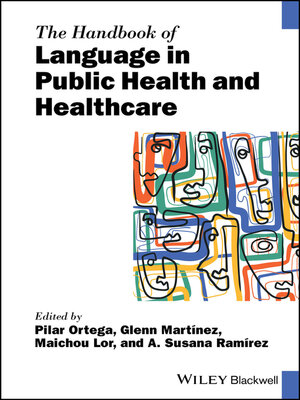The Handbook of Language in Public Health and Healthcare
ebook ∣ Blackwell Handbooks in Linguistics
By Pilar Ortega

Sign up to save your library
With an OverDrive account, you can save your favorite libraries for at-a-glance information about availability. Find out more about OverDrive accounts.
Find this title in Libby, the library reading app by OverDrive.



Search for a digital library with this title
Title found at these libraries:
| Library Name | Distance |
|---|---|
| Loading... |
An interdisciplinary overview of theory, history, and leading research in the field
With a joint linguistic and medical perspective, The Handbook of Language in Public Health and Healthcare explores innovative approaches for improving clinical education, clinician-patient communication, assessment, and mass communication. Contributions by a diverse panel of experts address a wide range of key topics, including language concordance in clinical care, medical interpreting, the role of language as a social determinant of health, reaching linguistically diverse audiences during public health crises, assessing clinician language skills, and more.
Organized into five parts, the Handbook covers the theory, history, and context of linguistics, language interpretation and translation, language concordance, medical language education pedagogy, and mass communication of health information with linguistically diverse populations. Throughout the text, detailed chapters present solutions and strategies with the potential to improve the health and healthcare of linguistically diverse populations worldwide.
In an increasingly multilingual, global society, language has become a critical area of interest for advancing public health and healthcare. The Handbook of Language in Public Health and Healthcare:
The Handbook of Language in Public Health and Healthcare is essential reading for undergraduate, postgraduate, and professional students of applied linguistics, health communication, and medicine. It is also an invaluable reference for language educators, clinicians, medical educators, linguists, health policy experts, and researchers.







